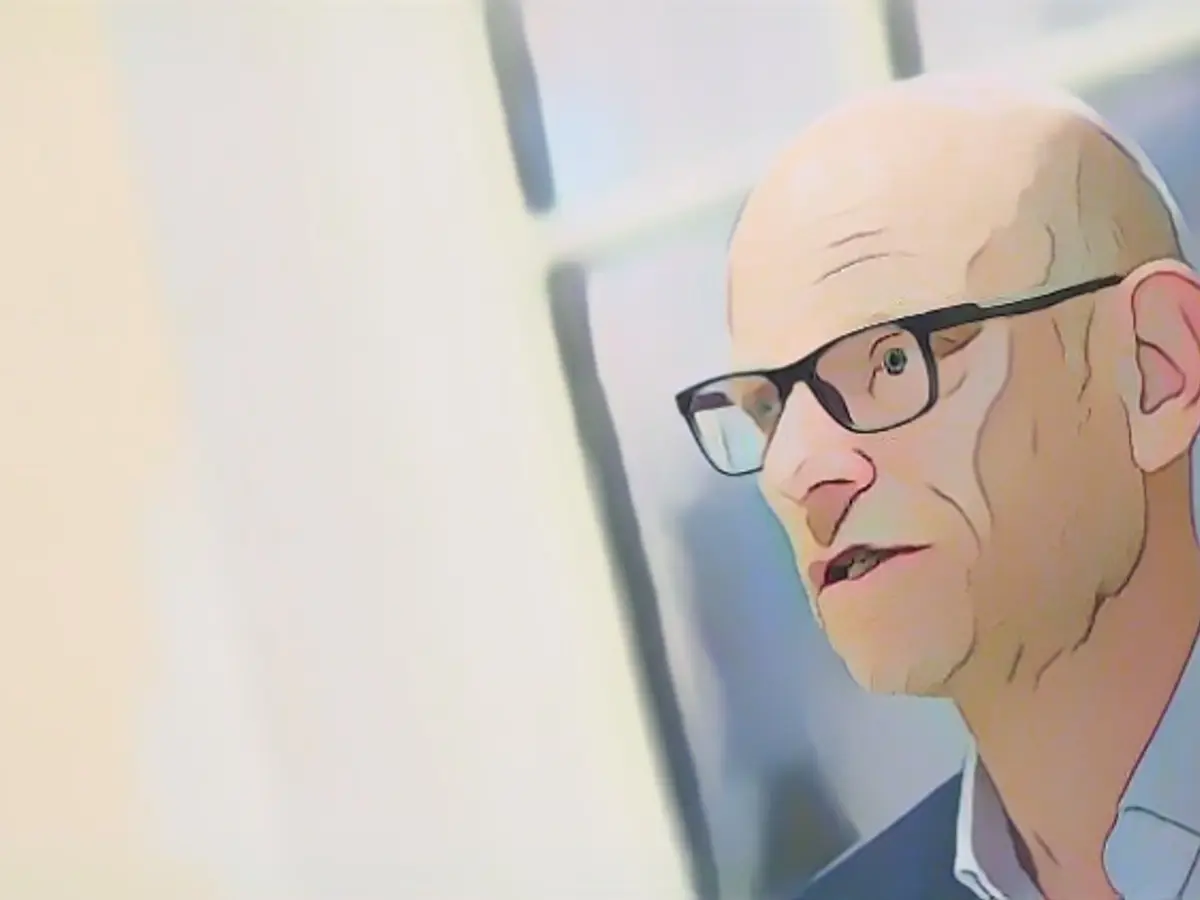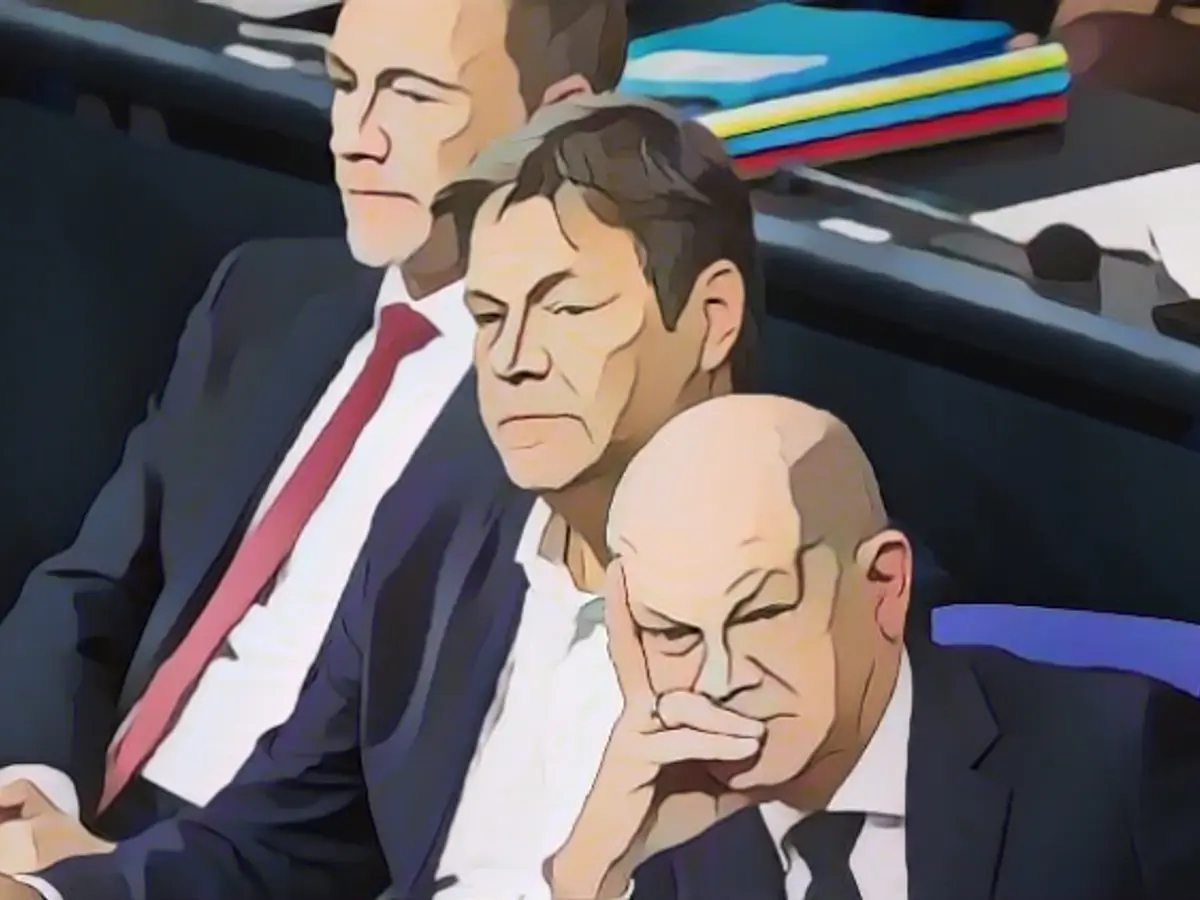"Sufficient climate protection no longer possible with this traffic light"
The Federal Constitutional Court's budget ruling has plunged the federal government into chaos. The 60 billion euro Climate and Transformation Fund is unconstitutional, as is the Economic Stabilization Fund (WSF). There are big question marks over the financial plans for the current and coming year. Germany has a budget deficit that is torpedoing climate protection and the energy transition. For Niklas Höhne, the matter is clear: after the coronavirus pandemic and the energy crisis, the traffic light should declare another emergency in order to circumvent the debt brake. Because climate change is nothing other than an existential threat, explains the co-founder of the New Climate Institute in the "Climate Lab". Höhne is also pushing for a new political start: in the last election campaign, the parties outbid each other with climate protection promises, but now they are not delivering, he says disappointedly: "I am skeptical that the traffic light will still manage climate protection in this constellation."
ntv.de: Do you think the ruling on the Climate and Transformation Fund ( KTF ) is justified?
Niklas Höhne: The Federal Constitutional Court ruled as it did. I don't want to question that. In my view, the Federal Government simply failed to declare an emergency for climate protection. I am a climate scientist and I say: the climate crisis is an emergency that threatens our very existence. It would be a good idea to declare it accordingly and set up a special fund or suspend the debt brake in the short term. That would be money well spent for the future, because the most expensive scenario is the one without climate protection. Then the damage will go over our heads. We certainly can't pay for that.
But climate change is a long-term and permanent crisis, a temporary emergency.

I've been doing this for 20 years or more. Back then, I would have said: yes, this is a long-term transformation. We do a little bit here, a little bit there. In the end, we did it. Instead, we've wasted time and are now so late that we're in this predicament. It's true that it won't be over in a year or two, but we will have to spend significant amounts of money over the next ten years to get away from coal, oil and gas. This is difficult and will meet with resistance, but it has to be done.
And if a state of emergency is declared, do we just set up the KTF as it was and carry on as planned?
If you take climate protection seriously, you should first implement all measures that reduce emissions quickly. The speed limit is always mentioned: If there is an emergency, you have to introduce it. Then environmentally harmful subsidies such as the diesel privilege and the company car privilege should be abolished. Kerosene should no longer be exempt from taxes. That costs us 65 billion euros every year. That's bigger than the hole torn by the KTF. Thirdly, a CO₂ price will be levied on fuels in the transportation and building sectors. This is rising and could be allowed to rise even further. That would have a signal effect, even if it would burden citizens, but some of this money could be paid back. Once all this has been done, we could declare a state of emergency, set up a special fund and invest in the transformation of our economy.
Do you really think the loss of the KFT is a big problem? If you look at the funding projects, you will see that a lot of money was earmarked for the semiconductor industry. This has little to do with climate protection.
For the most part, the fund supports good things, because the industry should develop in a climate-friendly way. A new, innovative political instrument has been created for this purpose. For example, if a company develops a climate-friendly but expensive process, it can apply and be reimbursed for the difference between the new and conventional technology. I think that's a good thing, because industry needs to switch to climate-friendly production methods. That won't happen overnight. The problem is that the ruling and the budget freeze mean that other things cannot be paid for: A lot of money has been budgeted in the federal budget for electricity grids, trains, rails, buses, cycle paths, electricity storage and charging networks. Money would have to be spent on an infinite number of things that we don't currently have.
But when a climate transformation fund provides billions for global corporations such as TSMC and Intel, it raises doubts about the work of the German government.
That surprised me too, but I suspect that the chip industry has been given grants because it is a technology of the future that would be an alternative to heavy industry. Nobody wants our economy to go down the drain and no longer be able to produce anything at all. That wouldn't help anyone either.
Can you understand why people are saying: We have a debt brake, we can't spend more than we take in. Or should the state in this case see itself more as an entrepreneur that takes on debt in order to position itself for the next 50 or even 100 years?
There are countries that do things differently. The USA takes on debt and subsidizes green technologies with the Inflation Reduction Act. In doing so, they are constantly attracting new industries from Europe.
Probably even more now than six months ago ...
In any case. Germany needs to think about whether it wants to do this.
Does the ruling still offer an opportunity to plan climate protection, the energy transition and economic transformation in a completely new and clean way?
Of course, it would be better to do this correctly and without an emergency ordinance. Even better, however, would be good climate policy, but that's not what we're doing. The simplest measures to save CO2 are not being implemented. Only when you have done that should you look at whether the money is enough. We lack an overall climate policy concept.
Can the current German government still deliver this concept?
No, I think that is unlikely. Sufficient climate protection is no longer possible with this traffic light system. But that was already apparent in the coalition agreement, because the parties have very different visions of what climate policy should look like. Everything was formulated very vaguely. The individual laws and financing plans now show how far apart they are. But if each party insists on its own ideas, I'm skeptical that the traffic light will be able to achieve climate protection in this constellation.
Clara Pfeffer and Christian Herrmann spoke withNiklas Höhne . The interview has been abridged and edited for clarity.
The Federal Government's budget deficit, as a result of the Constitutional Court's ruling, is hindering the implementation of effective climate protection policies.Christian Lindner, the Finance Minister, and Robert Habeck, the Environment Minister, both part of the Traffic Light Coalition, are currently navigating the financial challenges posed by the ruling.Given the urgency of climate change, Niklas Höhne, a climate scientist, suggests that the Traffic Light Coalition should declare an emergency and bypass the debt brake to invest in climate protection efforts.
Source: www.ntv.de








